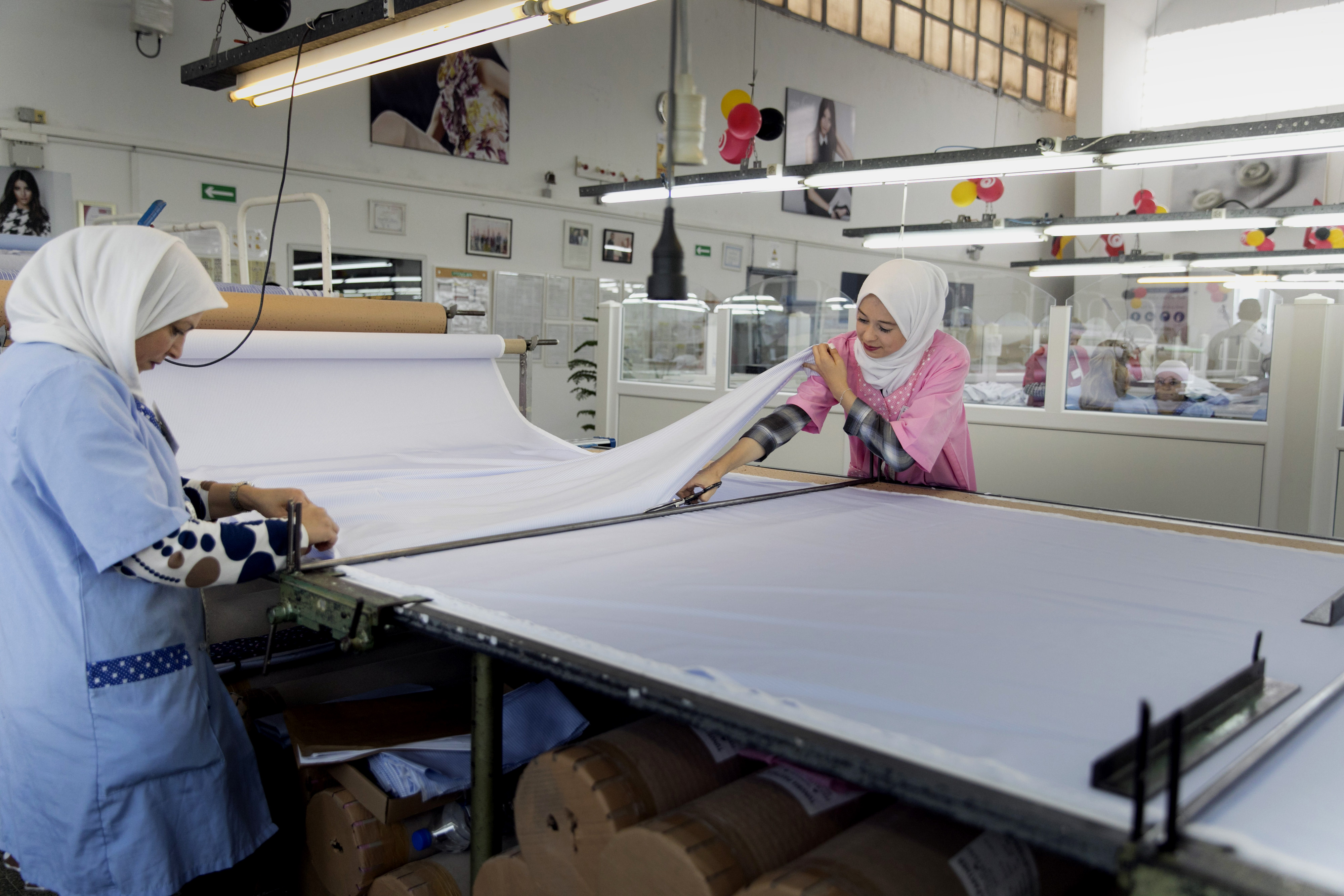Employee in a call center in Tunis
Copyright© Ute Grabowsky/photothek.net
Economic situation Close ties with Europe
The revolution has had a considerable impact on Tunisia's economy. The country's uncertain political future, as well as the unstable security situation there, have made many foreign investors wary of doing business in Tunisia. Tourism has slumped, and frequent strikes and blockades have crippled many Tunisian-based businesses over many months.
Following growth rates of three to four per cent from 2012 to 2014, economic growth slowed to under two per cent in the following years. As a result of the COVID-19 pandemic, the economy shrunk by 8.8 per cent in 2020. After a brief rebound with four per cent growth in 2021, Tunisia is currently suffering from the negative economic impacts of Russia’s war of aggression against Ukraine – the International Monetary Fund (IMF) has projected growth at 1.3 per cent for 2023.
Trade agreement with the European Union
The Tunisian economy is heavily dependent on the economic situation in Europe. Around two thirds of the country's foreign trade is with the European Union, and the major share of foreign investment comes from there.
In 1995, Tunisia was the first country in the Maghreb region to conclude an Association Agreement with the EU. In 2012, the country achieved the status of “privileged partner” and is now benefiting from wide-ranging programmes designed to enhance its competitiveness.
The EU and Tunisia began talks on a Deep and Comprehensive Free Trade Agreement (DCFTA) in 2015. However, these talks are currently on hold. The trade agreement is aimed at further opening up markets on both sides, in particular for agricultural and fishery products and for services.
Development potential
Two women cut a cotton fabric in a textile factory in Bizerte.
Investors are attracted to Tunisia because of its proximity to Europe, its high level of industrialisation in comparison with other countries in the region, its low labour costs and well-developed infrastructure, and the large numbers of university graduates with degrees in natural sciences or technical disciplines (and in STEM subjects the share of female graduates is at about 58 per cent).
There is potential for growth in the country's IT sector, its textiles and pharmaceutical industries, and in tourism. Tunisia also has the potential to establish itself as a production location for green hydrogen. However, this would need a more favourable business climate, brought about by comprehensive economic and financial policy reforms, and a stable and reliable environment generally.
In order to implement central macro-economic structural reforms, Tunisia started negotiations with the IMF on a new reform programme – the programme is yet to be agreed, however, and is not a priority of the Tunisian government (as at February 2024).
As at: 15/04/2024

